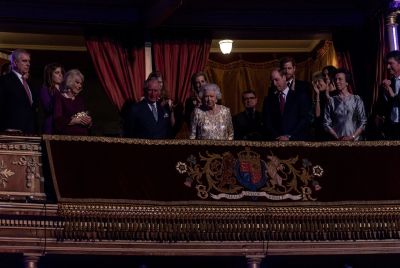Julia Wandelt Cleared of Stalking, Found Guilty of Harassing McCann Family
Polish woman who claimed to be Madeleine McCann convicted of harassment after contacting Kate and Gerry McCann.

Julia Wandelt, the 22-year-old Polish woman who went viral after insisting she was Madeleine McCann, has been found guilty of harassing the missing child's parents, Kate and Gerry McCann, following a five-week trial at Leicester Crown Court.
While the jury acquitted her of stalking, they agreed her repeated messages, phone calls and visits amounted to harassment — concluding a case that reignited debate over viral identity claims and the emotional damage caused by online obsession.
Harassment Conviction After Years of Unwanted Contact
Prosecutors stated that Wandelt waged a campaign of persistent communication, which included emails, handwritten letters, and more than 60 phone calls in a single day.
She also appeared uninvited outside the McCanns' home, leaving them 'deeply distressed'.
Although the court found no direct threat or intent to cause fear — the legal test for stalking — the pattern of contact clearly met the definition of harassment under UK law.
As the verdicts were read, Wandelt reportedly gasped and covered her face, appearing shocked by the outcome.

'I Believe I Am Madeleine McCann'
Wandelt first gained attention in early 2023 when she posted videos online claiming to be Madeleine McCann, the British toddler who vanished from a holiday apartment in Praia da Luz, Portugal, in 2007. Her claims were based on physical similarities, including a distinctive eye blemish, and what she described as 'recovered memories' of childhood trauma.
She told followers she had undergone hypnosis and recalled being abused by a man who resembled a suspect sketch in the McCann case. She also claimed to remember feeding Madeleine's younger brother, Sean, and playing with him as a child.
Her story went viral, garnering hundreds of thousands of followers on social media and landing her appearances on international television. In one interview, she insisted: 'I believe I am Madeleine McCann.'
DNA Test Disproves Claim
Wandelt's claims were ultimately debunked after a DNA test confirmed she was not related to the McCann family. The test revealed she was of Polish descent and had no genetic link to the missing child. Despite this, she continued to contact the McCanns, prompting them to seek legal protection.
Kate McCann gave evidence during the trial, describing the emotional toll of Wandelt's actions. At one point, Wandelt became visibly distressed in court and had to be calmed by her legal team.
Mental Health and Online Obsession
The court heard that Wandelt had a history of mental health issues and had been institutionalised in Poland before her viral claims. Her obsession with the McCann case reportedly began after she discovered similarities between herself and aged-progressed images of Madeleine.
She later moved to the UK, where her behaviour escalated into direct harassment. Prosecutors argued that her actions were not only intrusive but deeply distressing to a family that has endured years of public scrutiny and false leads.
Public Reaction and Legal Implications
The case has sparked renewed scrutiny of how viral misinformation can impact real lives. While Wandelt's acquittal on stalking may reduce the severity of her sentence, her harassment conviction carries severe legal consequences. Sentencing is expected in the coming weeks.
The McCann family has not issued a public statement following the verdict. Their daughter Madeleine remains missing, and the investigation into her disappearance continues across multiple jurisdictions.
© Copyright IBTimes 2025. All rights reserved.




















